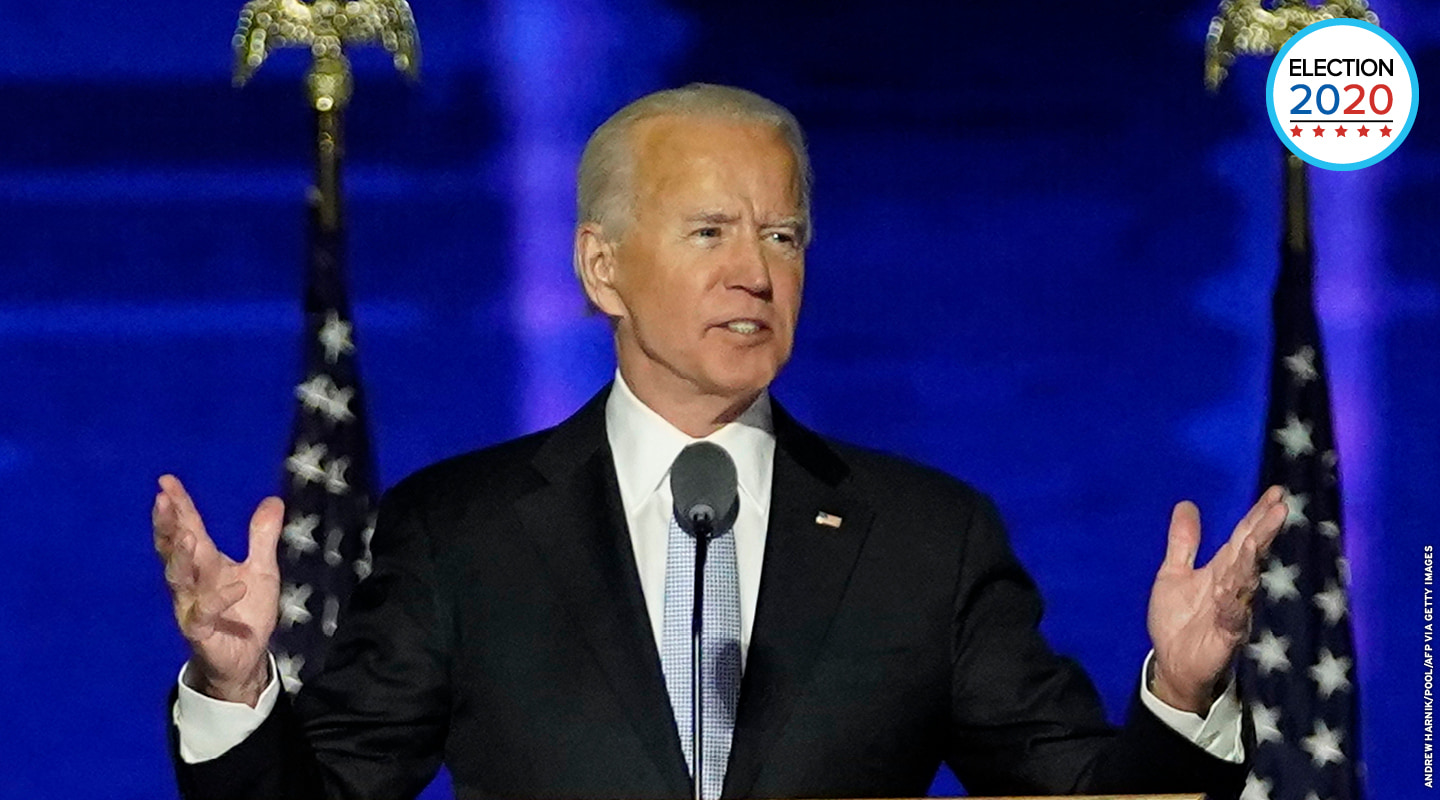After one of the most divisive elections in U.S. history, most mainstream news outlets, including the Associated Press, The New York Times, and The Wall Street Journal, projected on November 7 that former Vice President Joe Biden, a Democrat, had enough electoral votes to win the presidency.
As of November 13, a winner had been projected in all 50 states. Biden and his vice presidential running mate, U.S. Senator Kamala Harris, had secured 306 electoral votes. President Donald Trump, a Republican, and his running mate, Vice President Mike Pence, had 232. A candidate needs at least 270 electoral votes out of 538 to win the presidency. (Click here to learn more about the Electoral College.) Harris will be the country’s first female vice president, as well as the first Black American and the first South Asian American to hold that office.
Trump, however, has not yet conceded the election and has filed lawsuits in some states over the counting of ballots.
About 160 million Americans voted—more than in any previous election, according to estimates by the U.S. Elections Project. That figure represents about 66 percent of the voting-eligible population. But the final electoral results largely depended on voters in a handful of swing states, including Michigan, Nevada, Ohio, Pennsylvania, and Wisconsin.
In terms of the popular vote, Biden has won more than 79 million votes so far, while Trump has won more than 73 million. However, the popular vote totals remain unclear in several states. That’s because tens of millions of Americans nationwide voted by mail, many more than in any previous election. Processing mail-in ballots can be time-consuming, and many are still being counted. Still, experts say the outcome of the election is unlikely to change.
In the congressional races, Democrats will keep a majority of seats in the U.S. House of Representatives. But experts say we won’t know which party will have a majority in the U.S. Senate until January, when two special Senate races will take place in Georgia.

